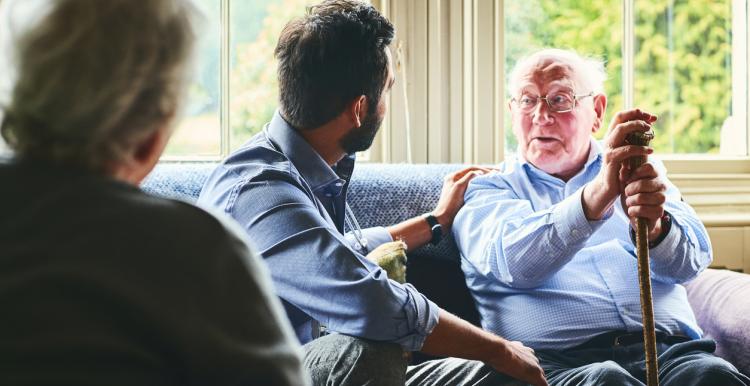What have people told us about health and social care

Each quarter we publish a round-up of the issues that people are raising with us about health and social care services.
Our latest briefing looks at the emerging themes across GPs, hospitals, mental health and social care services. We also take an in depth look at what people with incontinence have told us about the support they have received.
Emerging themes by service area
GPs - Good communication needed when services change
It is important that changes to services are well communicated and do not affect people's care. Some people have told Healthwatch that poor communication of GP practice mergers and closures has resulted in them no longer being registered with a GP and unable to access support.
Hospital care - Giving physical health and mental health issues equal consideration
When people attend A&E their mental health and physical health should be given equal consideration. People have reported instances where physical health concerns have not always been taken seriously if they also have a mental health condition. This left them feeling frustrated and having to push for further tests or support.
I had an ambulance out about two months ago for severe chest pains and pains down my arms, they put it down to anxiety. Two months on, I am currently curled up in pain, in agony with chest pains, getting dizzy to the point of nearly passing out.
Social care - Improving access to autism support
Social care support for autistic children and adults covers a wide range of services, such as community care or funding support, but people have told us their experiences of accessing care can be poor. For example, it can be hard to get an assessment for support and people are left waiting for a long time for their assessment appointment, without any interim care.
Mental health - Involving people in discussions about diagnosis
Being involved in decisions about mental health care is important. However, people have told us that this does not always happen, particularly families and carers who have shared they have not been involved in decisions about the diagnosis and care being offered to their loved ones.
In focus - Continence care
We take a more in-depth look at the experiences people have
Incontinence, a condition that causes involuntary passing of urine and/or faeces, affects approximately 14 million people. It can have a profound impact on your health and independence, so it is important people get support that preserves their dignity and privacy.
However, people have shared with us that the continence care they have received is not meeting their needs. Issues people have raised with us include:
- problems accessing continence products, for example, because there is no information about how to get support,
- continence products not being suitable for them or of poor quality,
- the impact incontinence can have on people's mental health is not being considered,
- people are not being treated with empathy,
- services not considering people's disabilities when providing continence care,
- and poor support for incontinence in care homes.
Download the report
Between July and September 2019, Healthwatch England received over 10,500 people’s experiences of using health and social care from our network. This briefing outlines what we have heard over the last three months, and how we're using this information to help shape health and social care policy and practice.


